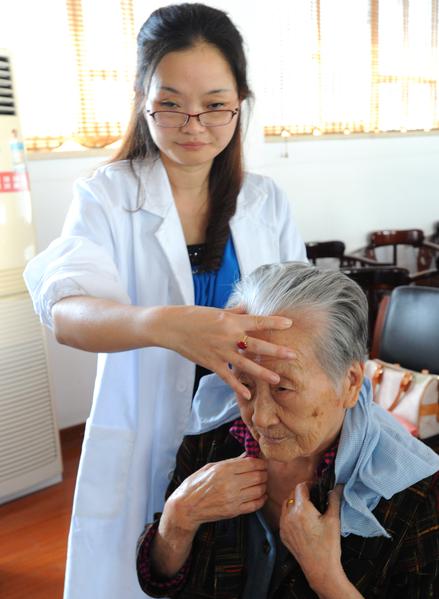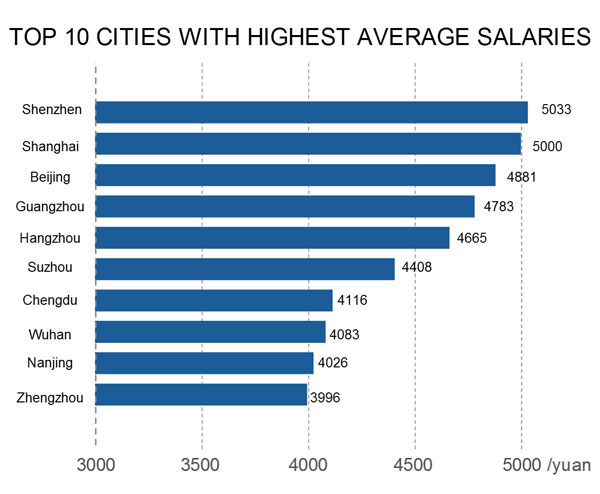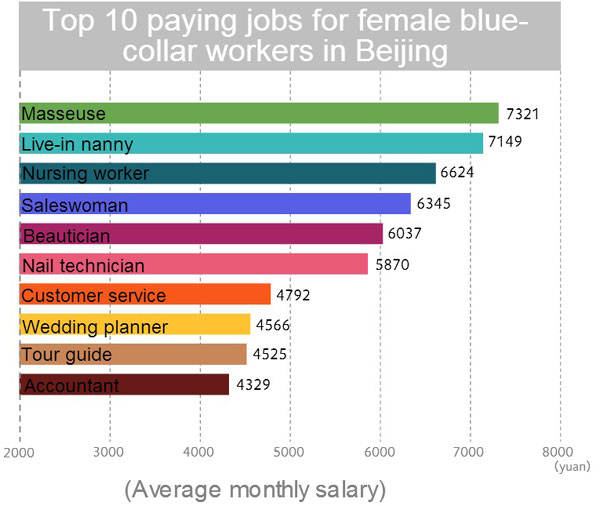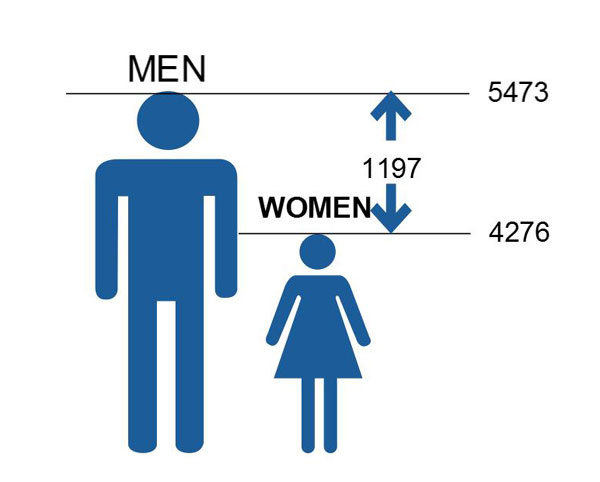Blue-collar female workers make $688 a month
By Wang Zhenghua (chinadaily.com.cn) Updated: 2015-03-25 15:50
 |
|
A blind masseuse offers service in Suzhou, Jiangsu province, Oct 14, 2013. [Photo/Xinhua] |
Blue-collar female workers in China's first- and second-tier cities made an average of 4,276 yuan ($688) per month, with masseuses taking the lead with an average salary of 6,214 yuan.
According to a report on the employment of female blue-collar workers in 2015 by classified website ganji.com, women in Shenzhen earned the most with an average salary of 5,033 yuan. That's followed by Shanghai with 5,000 yuan, Beijing 4,881 yuan, and Guangzhou 4,783, the Beijing Morning Post reported on Wednesday.
 |
|
Source: A report of the employment of female blue-collar workers in 2015, issued by ganji.com, a classified ad website. |
In Beijing, the average salary of masseuses reached 7,321 yuan, followed by live-in nannies earning 7,149 yuan.
Saleswoman, real estate agents, safety guards, beauty salon workers, express delivery women, and some Blue-collar white-collars are covered in the report, excluding the women sweating in factories or on construction sites.
 |
|
Source: A report of the employment of female blue-collar workers in 2015, issued by ganji.com, a classified ad website. |
These women make a living in the first-tier cities of Beijing, Shanghai, Guangzhou, Shenzhen and Tianjin, or second-tier cities that includes most of the provincial capitals, such as Hangzhou and Chengdu, as well as some coastal cities.
The report showed that gender discrimination is still prevalent in China's employment market, with 46 percent of the women surveyed said there is unfairness when they try to land a job or compete for a higher position.
Another 44 percent said that their salary is lower than their male counterparts. The report showed that female blue-collars earn 1,197 yuan less than their male peers on average.
 |
|
Source: A report of employment of female blue-collar worker in 2015, issued by ganji.com, a classified ad website. |
Traditional perceptions, such as of no talent is the virtue of a woman, or women tend to focus more on their families instead of their jobs, are part of the reasons behind the prejudice, ganji.com said.
The report also showed that about 89 percent of female blue-collars help cover the household expenses at a time when higher living cost causes the male members, in most families, not able to support the families on their own.
About 75 percent of the Blue-collar female workers left their children behind with the family's elderly members at their home villages, while the young couples seek a job in big cities, the report said. These women will resort to telephone or video camera to contact their husbands or children when they are not able to be with them.
- Govt encourages people to work 4.5 days a week
- Action to be taken as HIV cases among students rise
- Debate grows over reproductive rights
- Country's first bishop ordained in 3 years
- China builds Tibetan Buddhism academy in Chengdu
- Authorities require reporting of HIV infections at schools
- Typhoon Soudelor kills 14 in East China
- Police crack down on overseas gambling site
- Debate over death penalty for child traffickers goes on
- Beijing to tighten mail security for war anniversary







